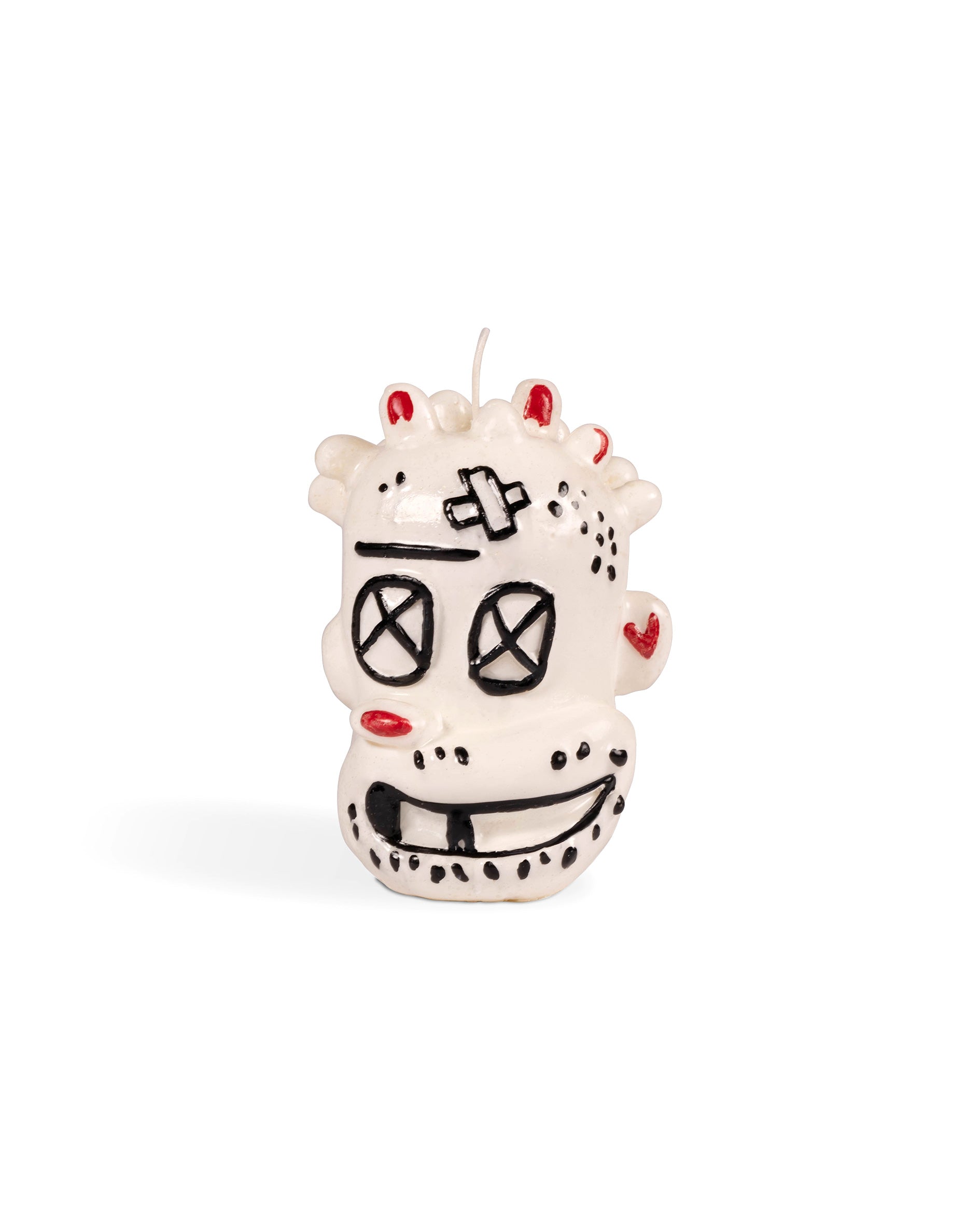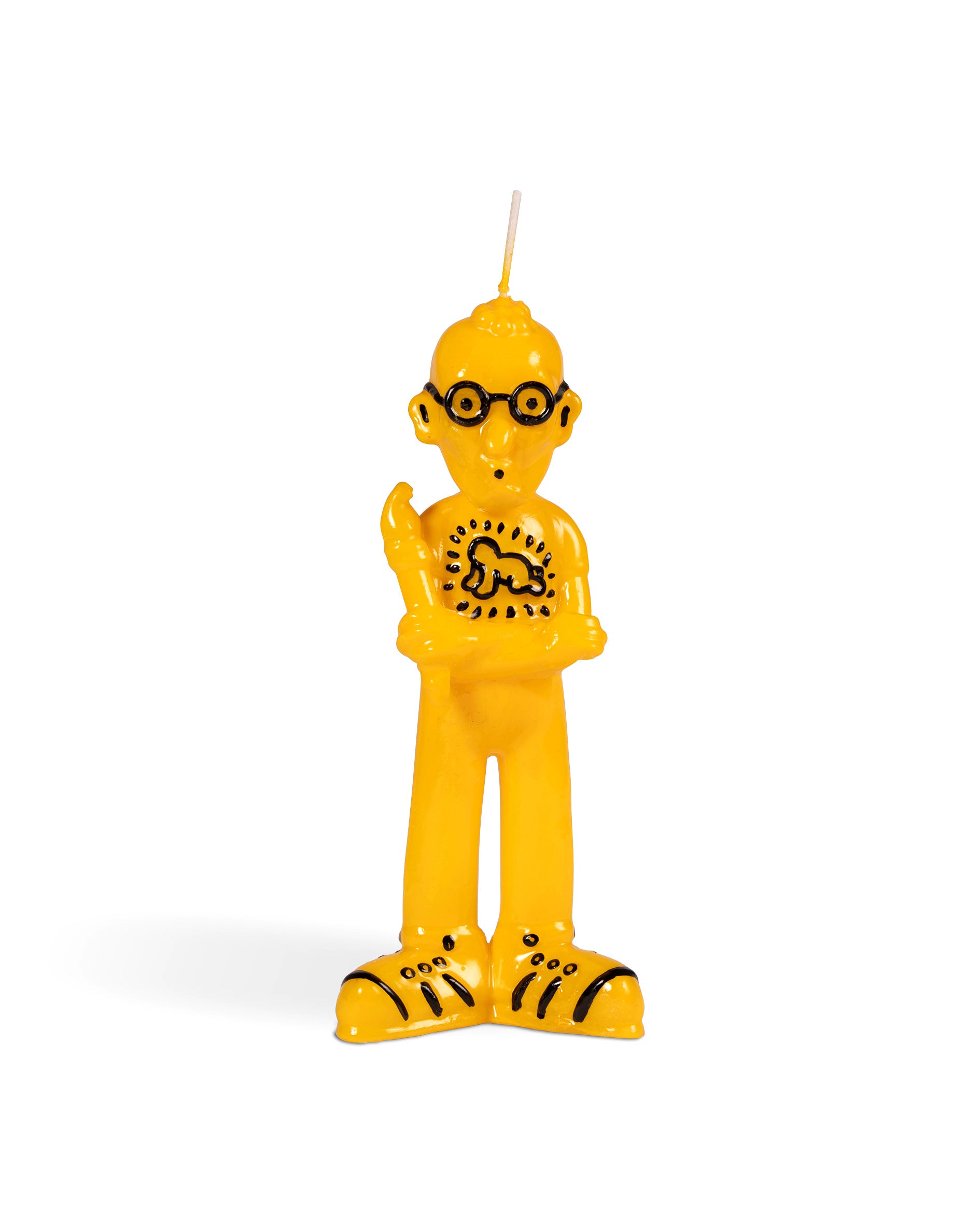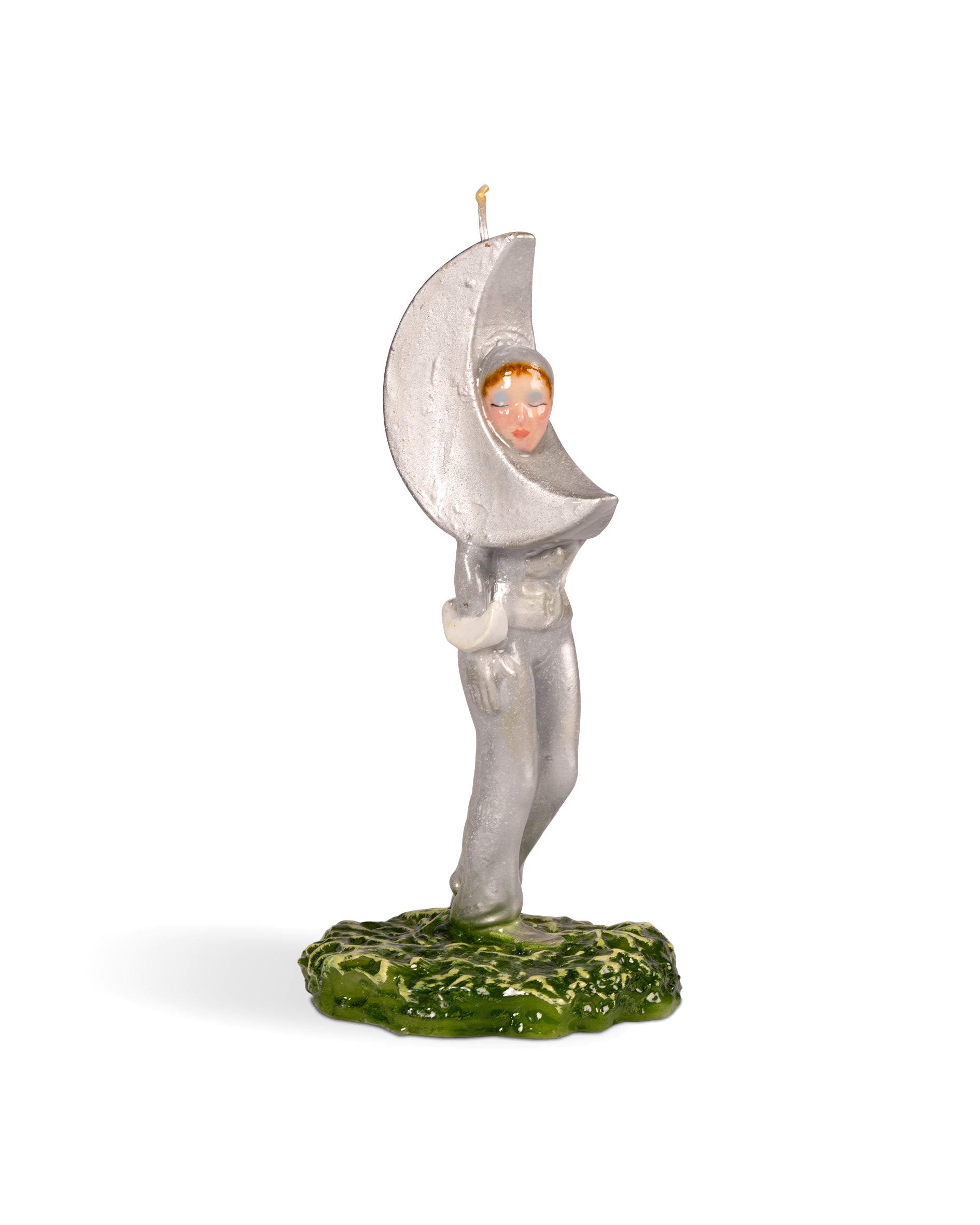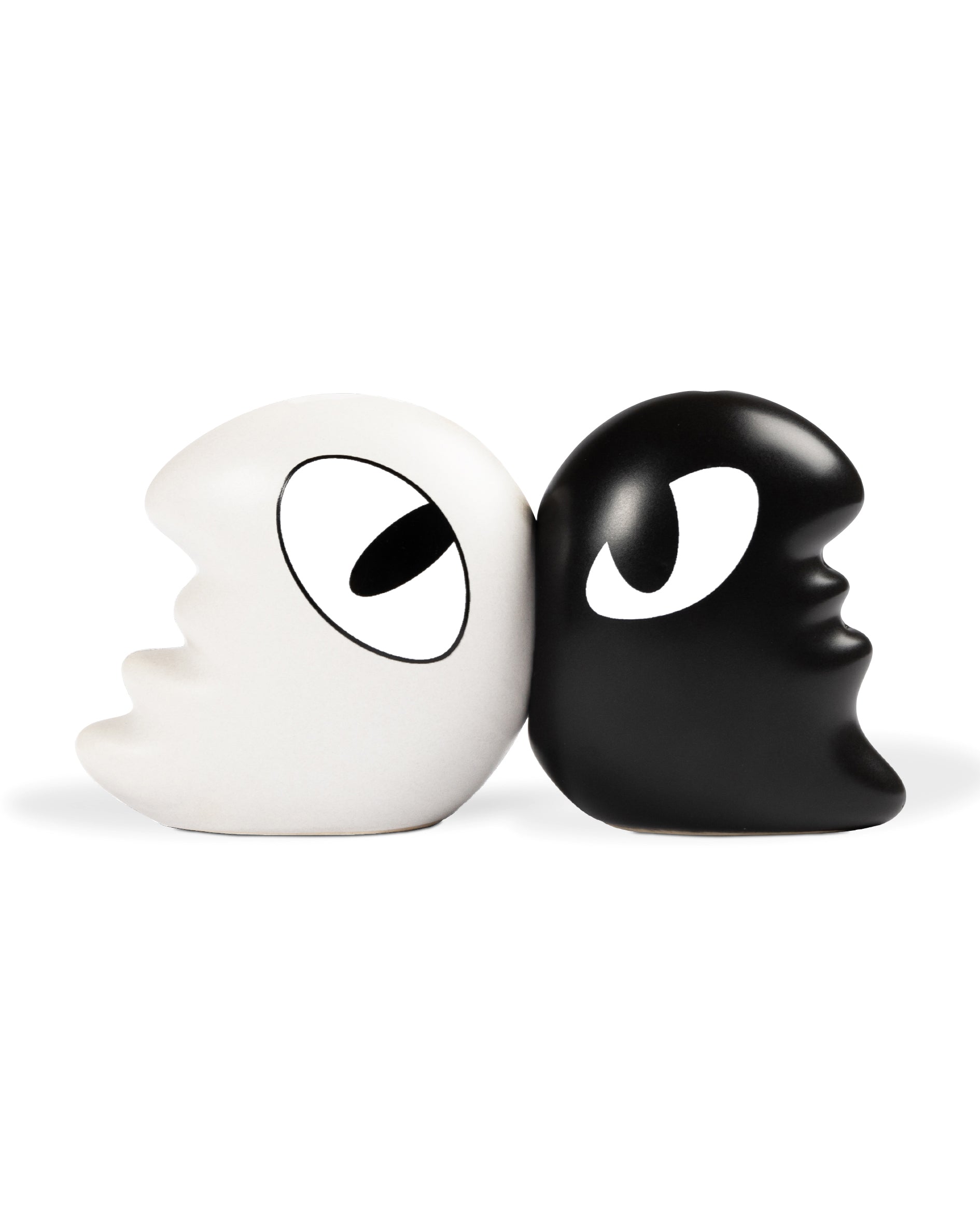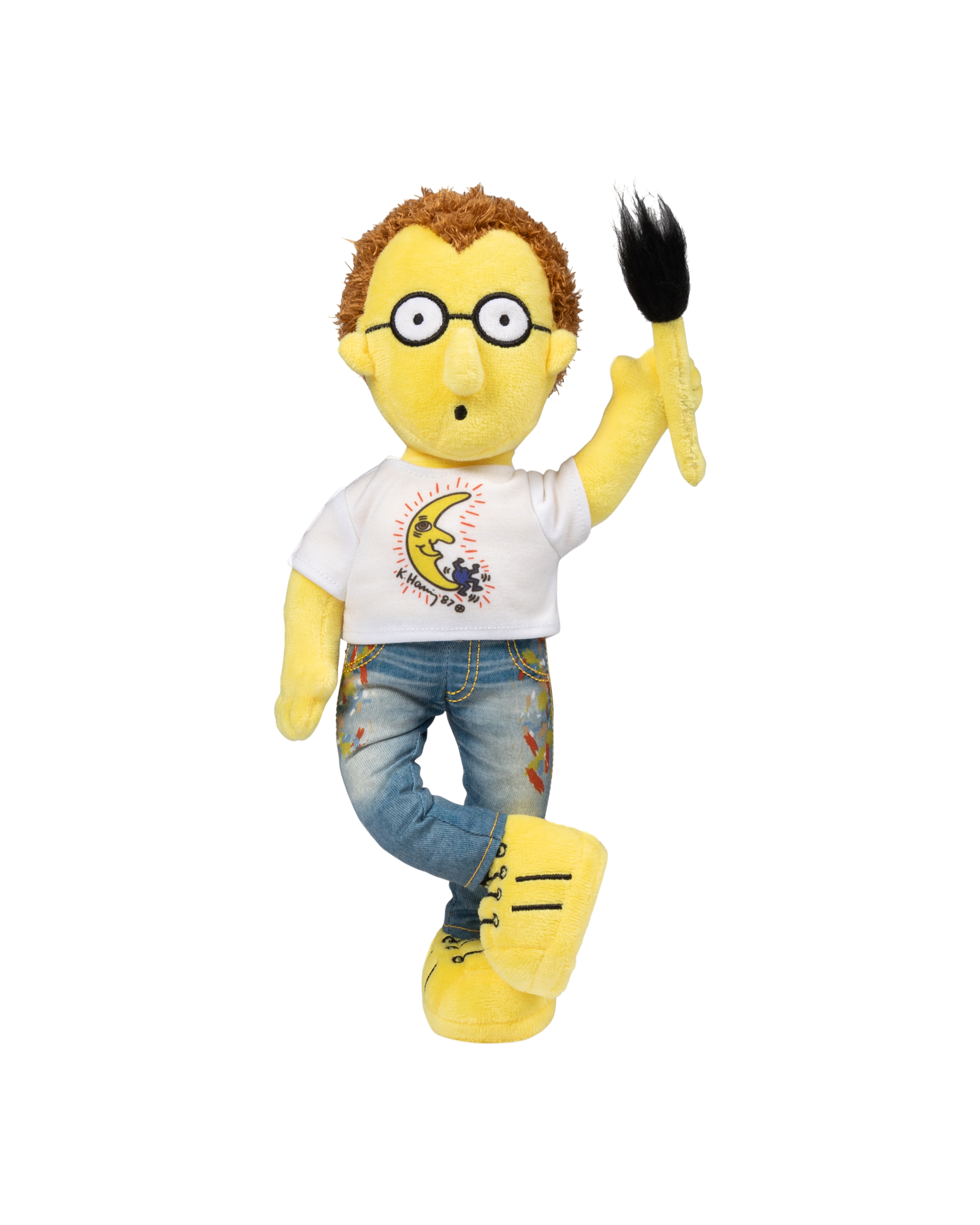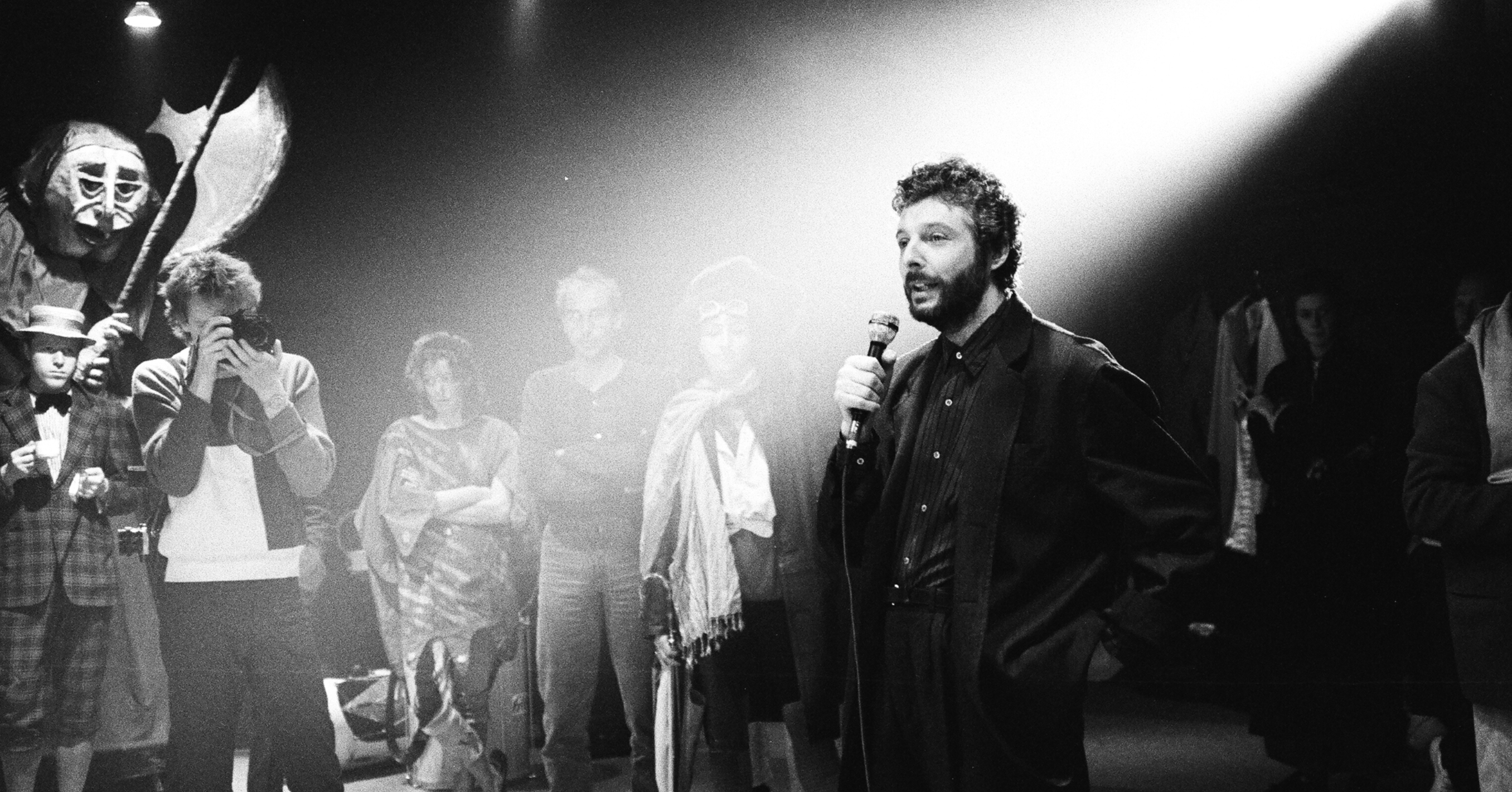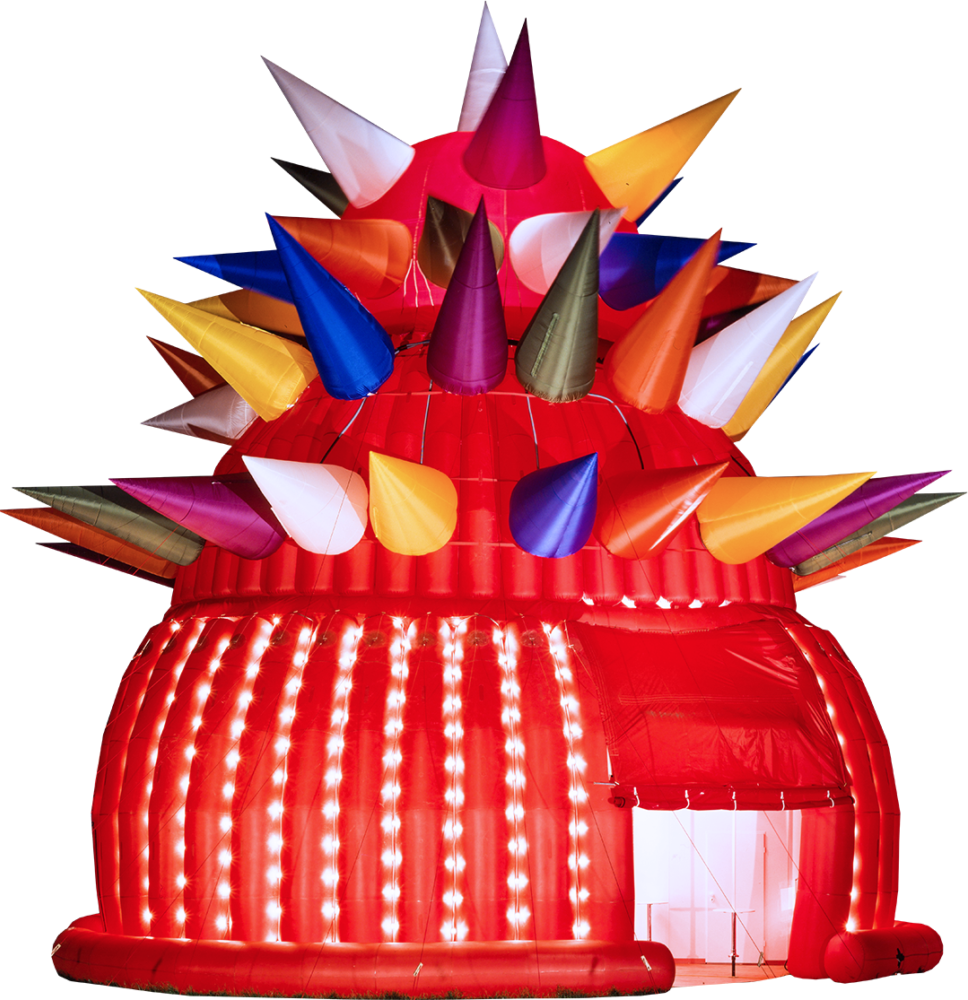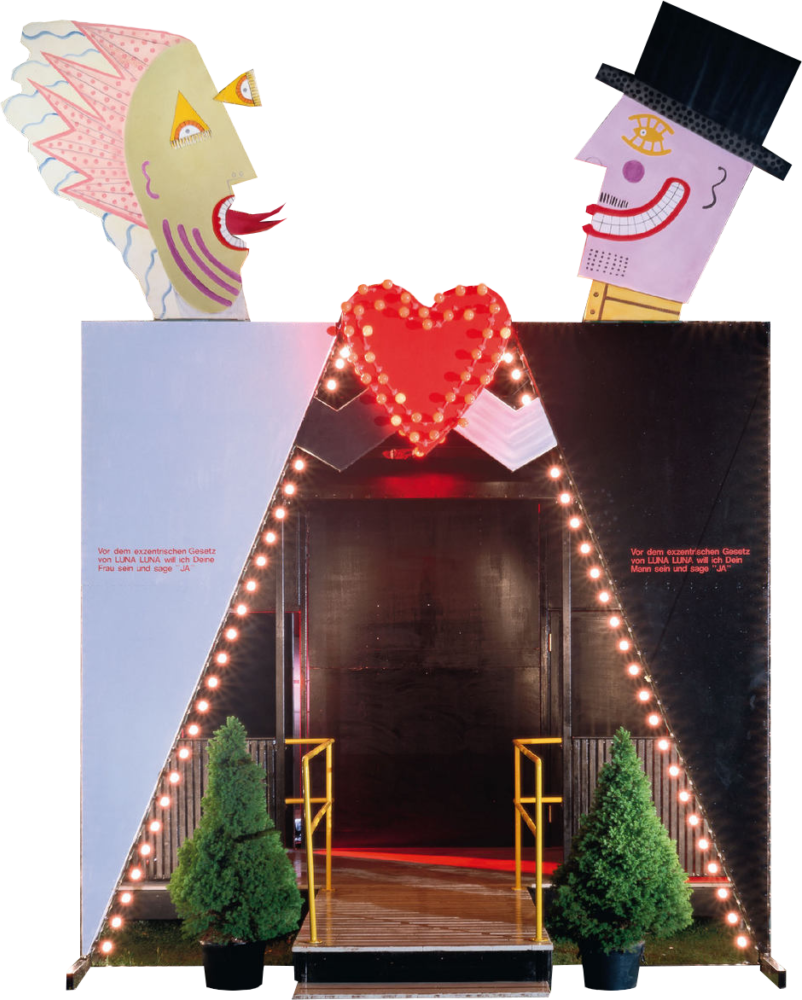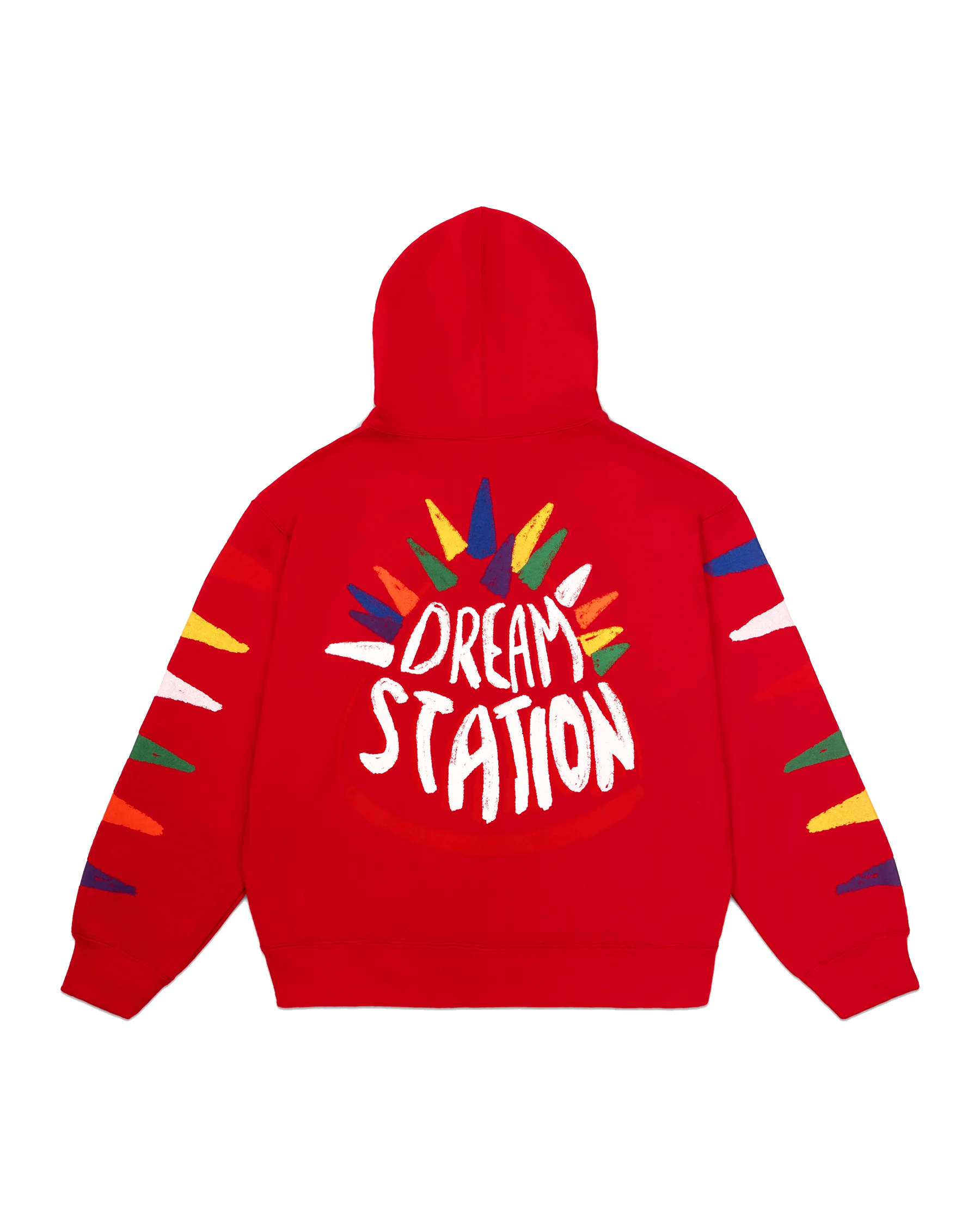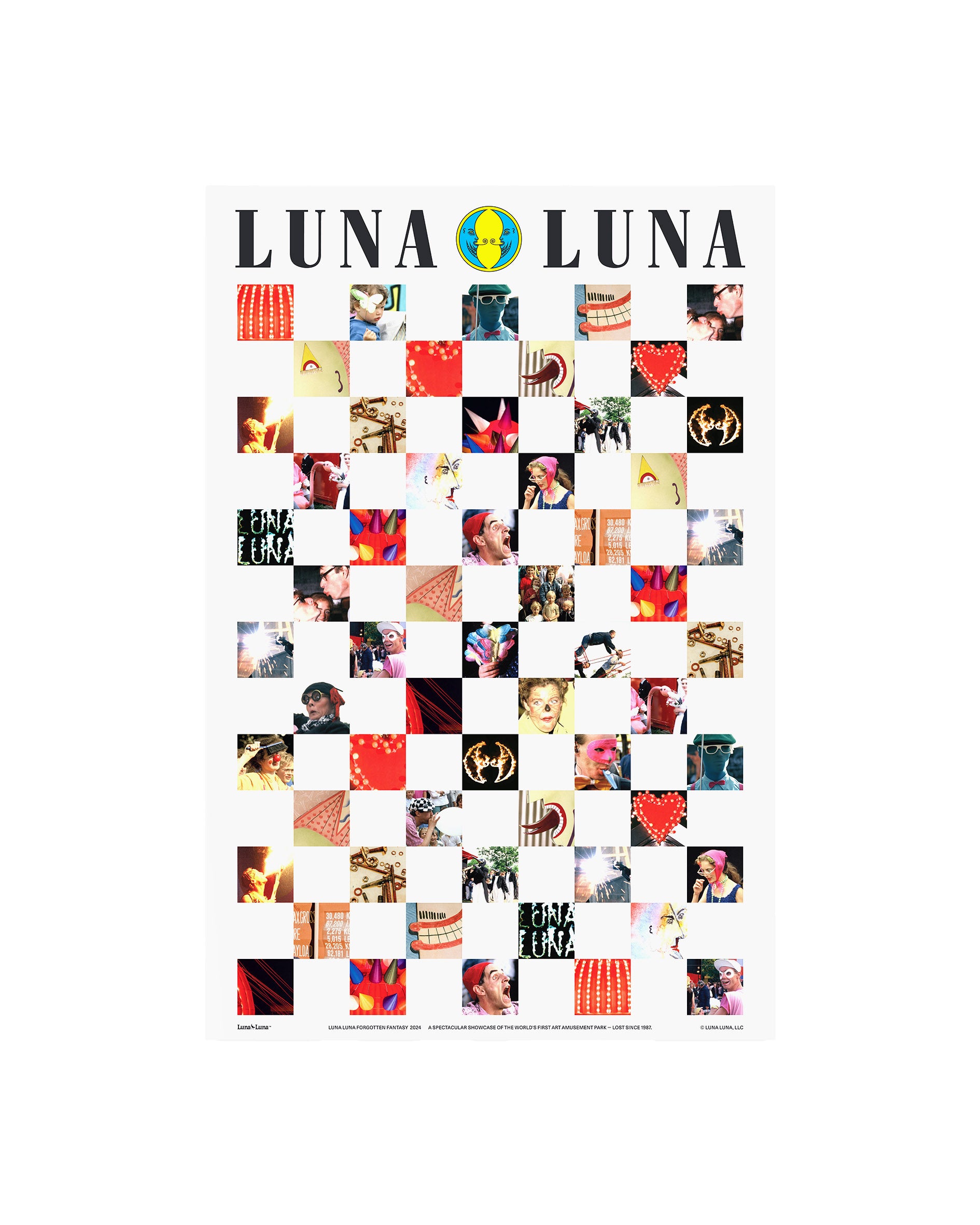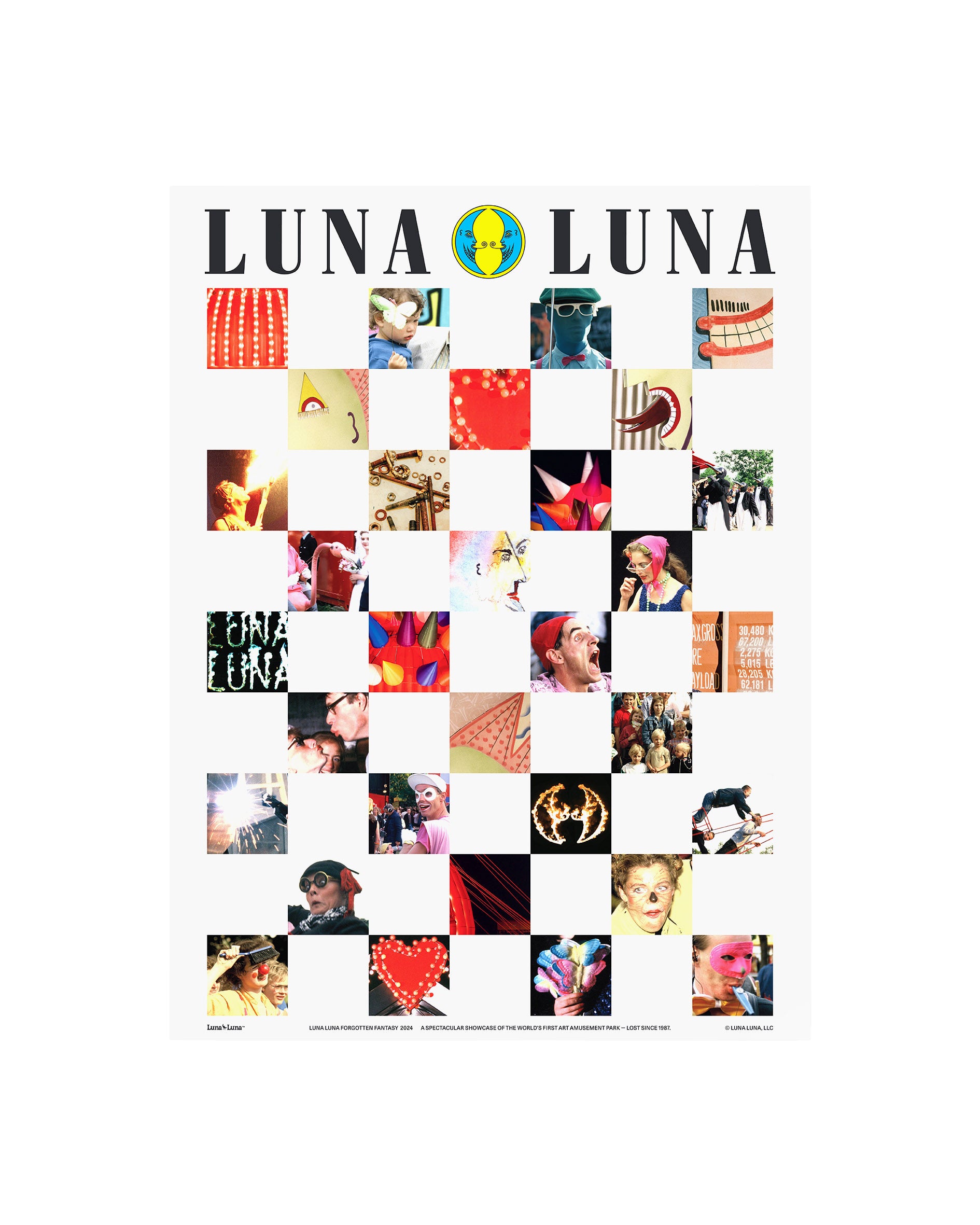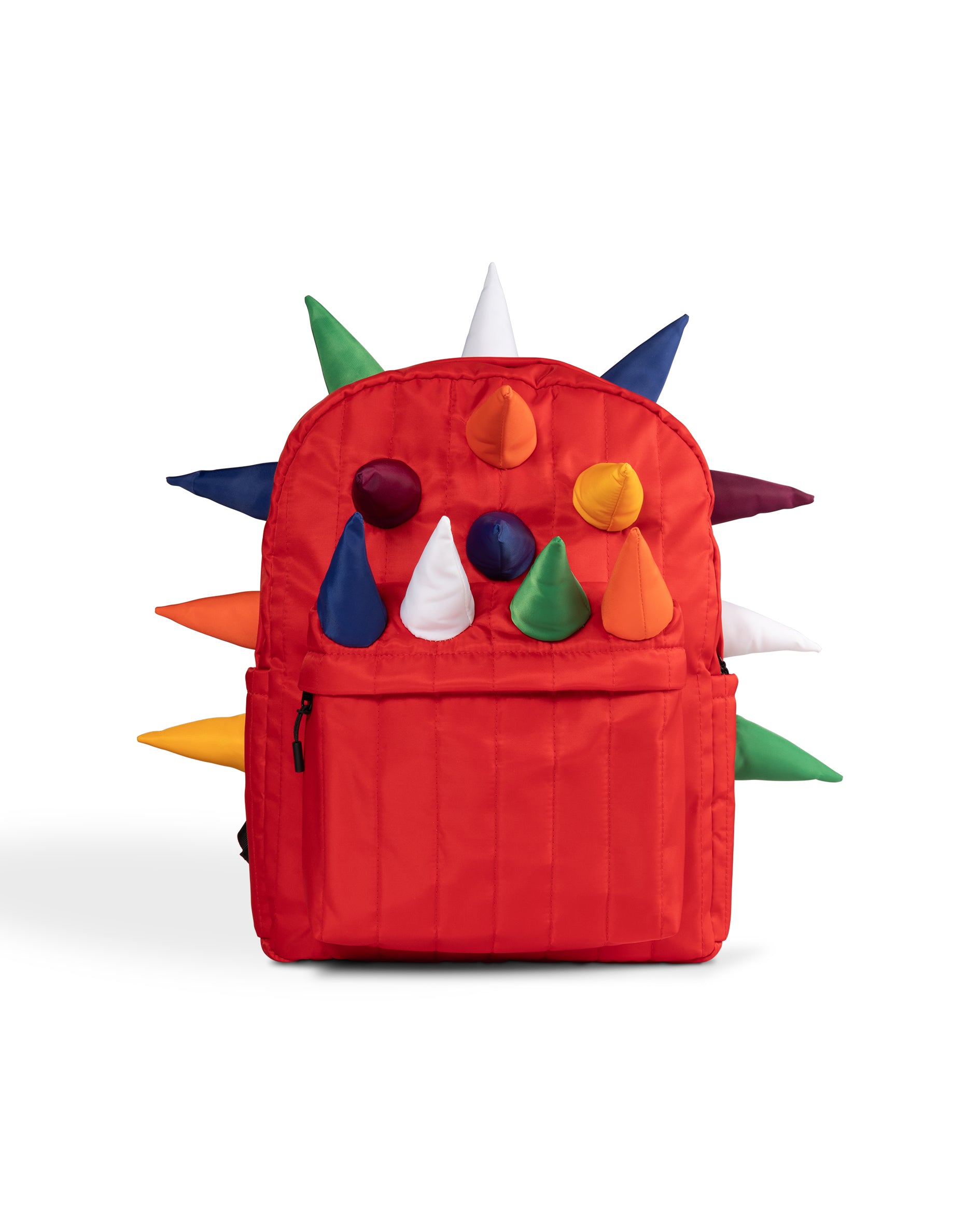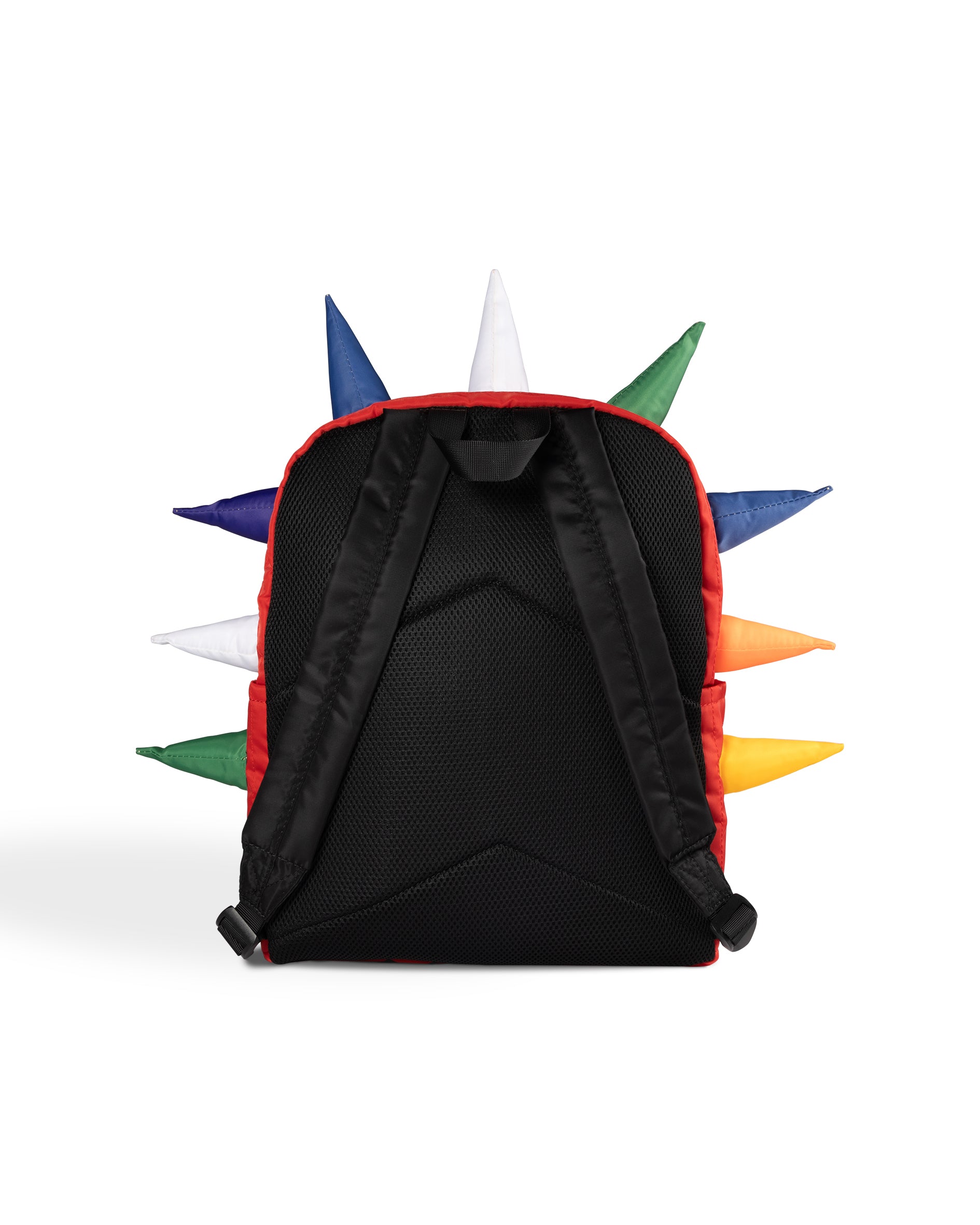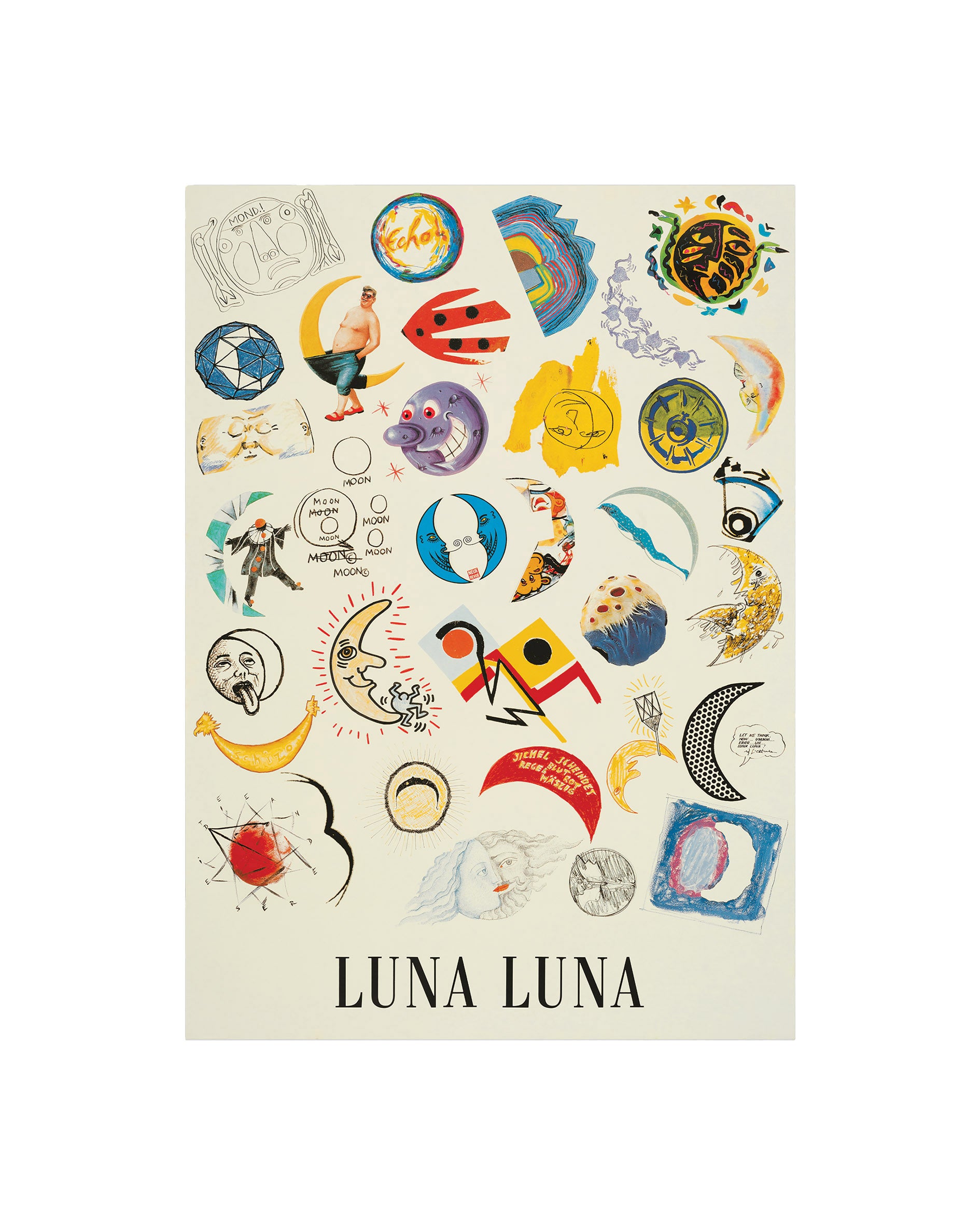Heller created two attractions for Luna Luna: The Dream Station and a Wedding Chapel.
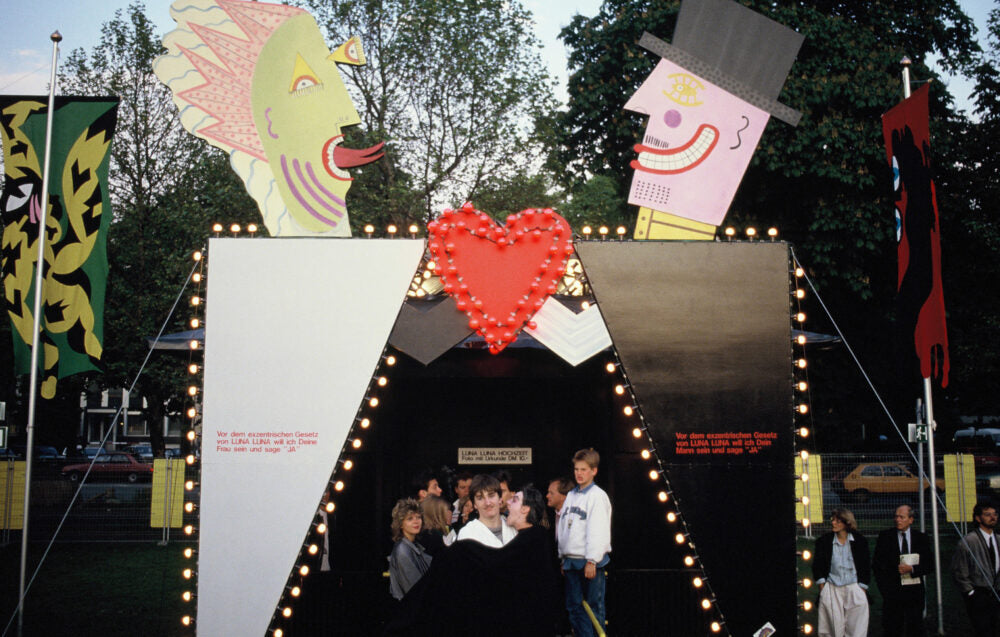
Fairground view: André Heller, Wedding Chapel. Luna Luna, Hamburg, Germany, 1987.
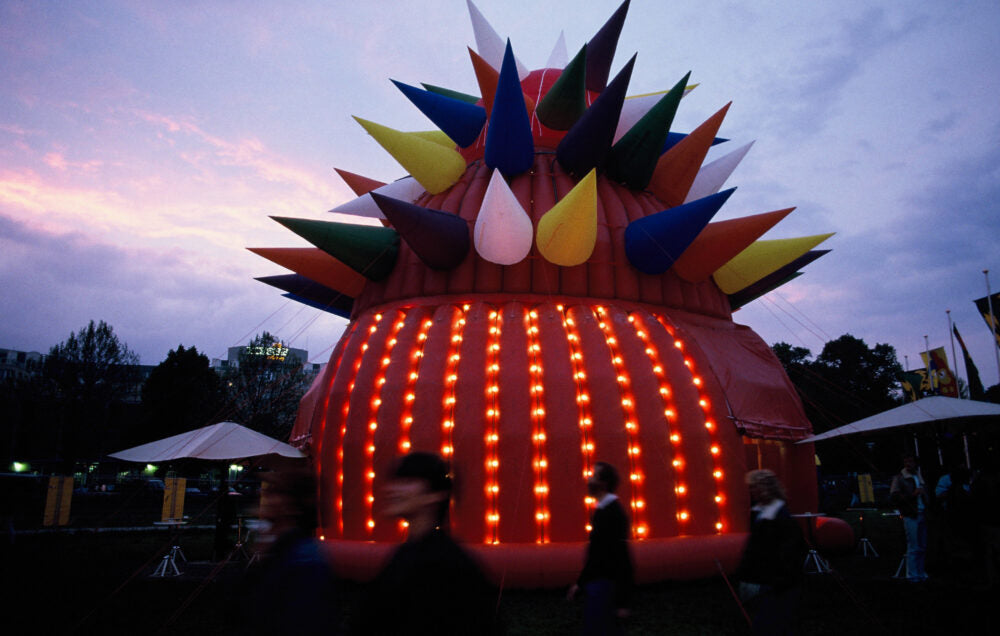
Fairground view: André Heller, Dream Station. Luna Luna, Hamburg, Germany, 1987.
Driven by his ceaseless curiosity and desire to traverse artistic mediums, Luna Luna originator André Heller has worked across film, installation, music, theater, sculpture, and writing. Although the 1987 edition of Luna Luna focused on fun and leisure, Heller’s recent work harbors political meaning. Recently, he curated an exhibition at Weingut Taggenbrunn in St. Veit an der Glan where his collaborative project Weltzustandsmaschine (“World State Machine”) dispenses information about climate change. In addition, his Heroes of Peace installation, in collaboration with Swarovski, incorporates projections and holograms of Nobel Peace Prize winners and other individuals devoted to peace, including John Lennon, Nelson Mandela, and Pablo Picasso.
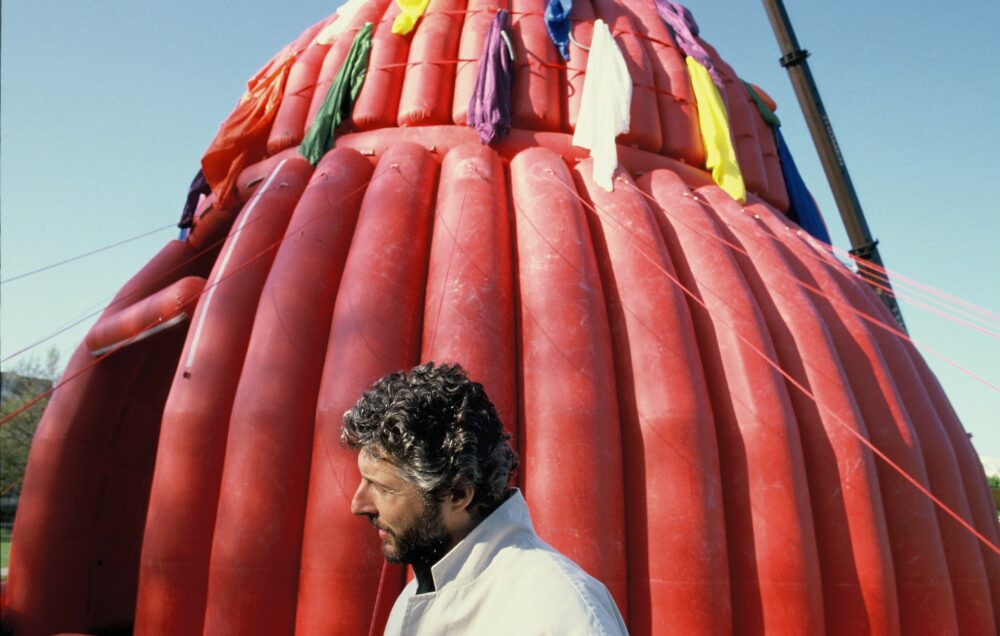
André Heller, Dream Station. Luna Luna, Hamburg, Germany, 1987.
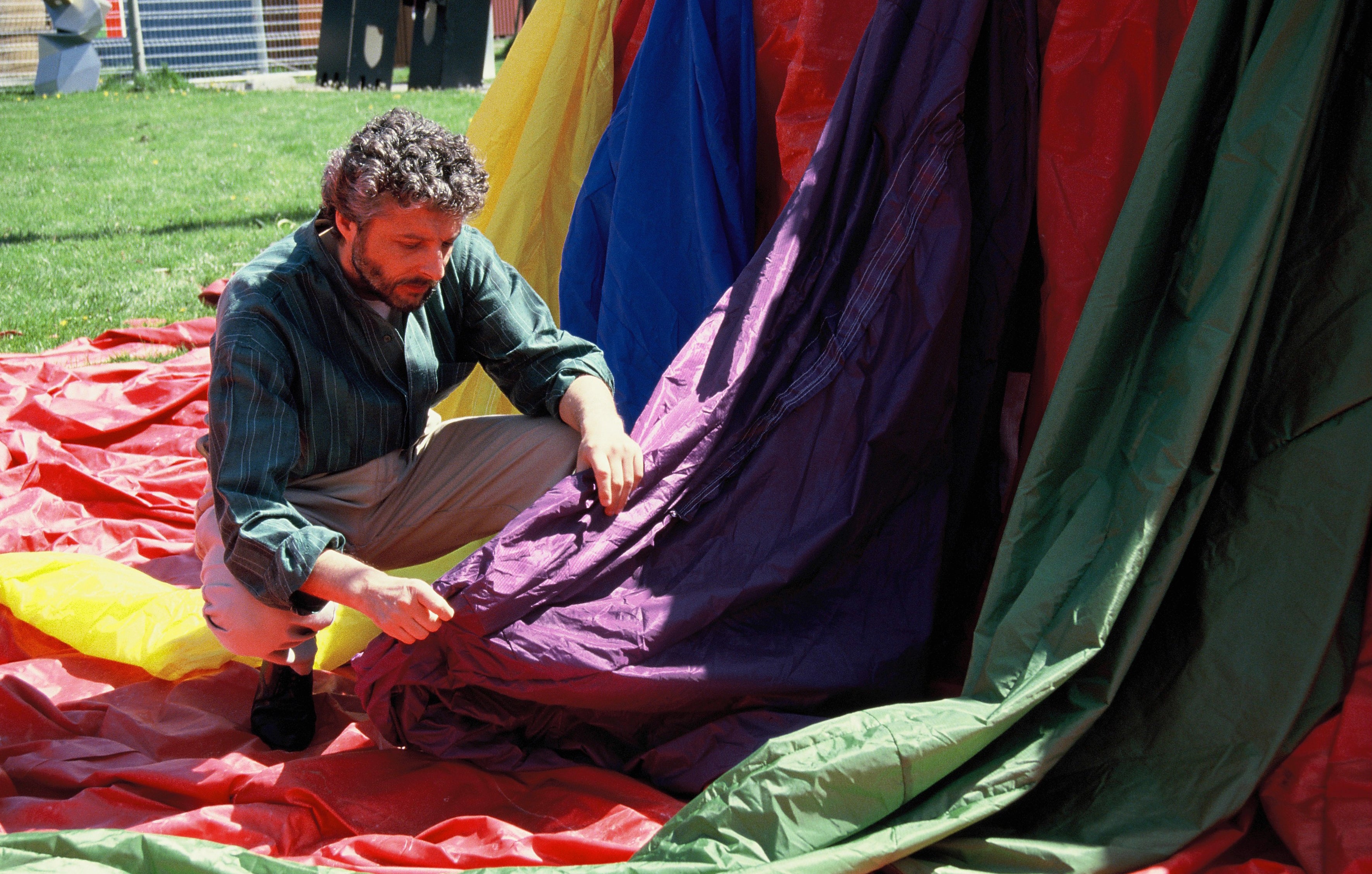
André Heller, Dream Station. Luna Luna, Hamburg, Germany, 1987.
In 1974, Heller devised the initial plans for Luna Luna, which he described as a Gesamtkunstwerk or “total work of art” that combined visual art, music, theater, design, circus arts, and performance. Interviewed by ARTnews a decade later, he explained that the purpose of Luna Luna was to use art and imagination to survive and fight back against an endangered world. Heller has said that his greatest achievement was accomplishing Luna Luna with limited funding: 500,000 Deutsche Marks provided by the German publication Neue Revue. For his artistic contribution to Luna Luna, Heller created an inflatable, spiked balloon sculpture, derived from one of his Flying Sculptures (1986-90), that contained a café. Additionally, he made a stage flanked by large-scale cubist sculptures of a bride and groom where visitors could “marry” whomever they chose—a political act in the 1980s when marriage was restricted to heterosexual couples.
The purpose of Luna Luna was to use art and imagination to survive and fight back against an endangered world.
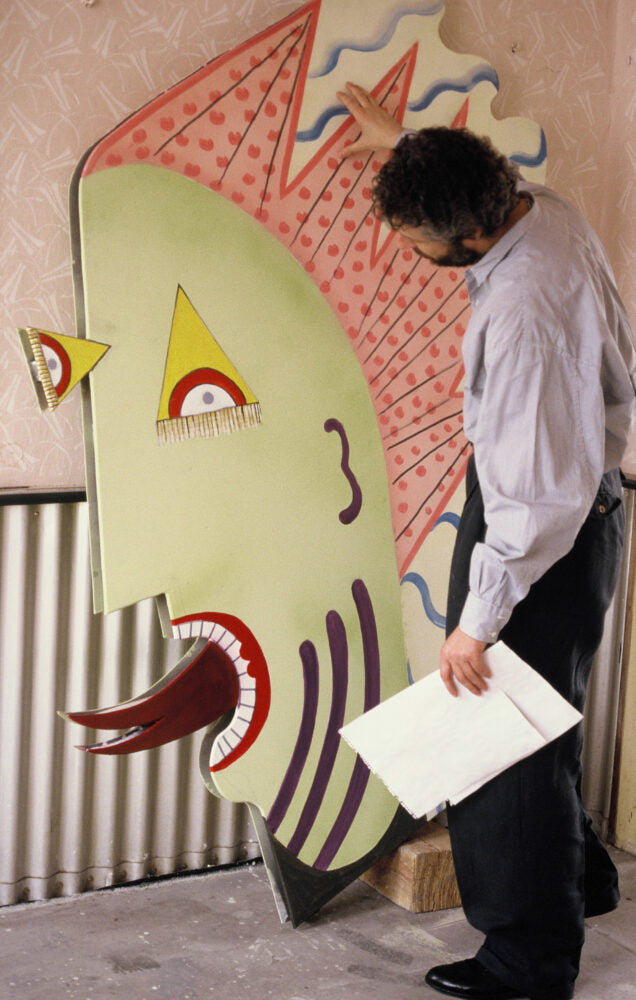
André Heller with cubist sculpture for Wedding Chapel, exhibited 1987.
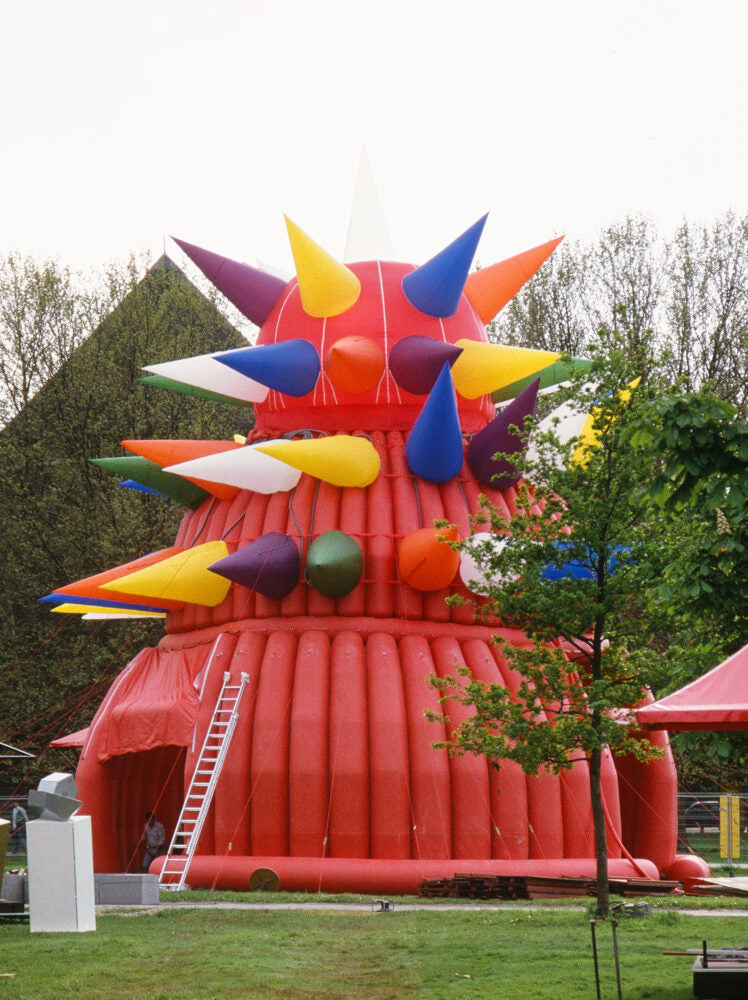
Fairground view: André Heller, Dream Station. Luna Luna, Hamburg, Germany, 1987.

